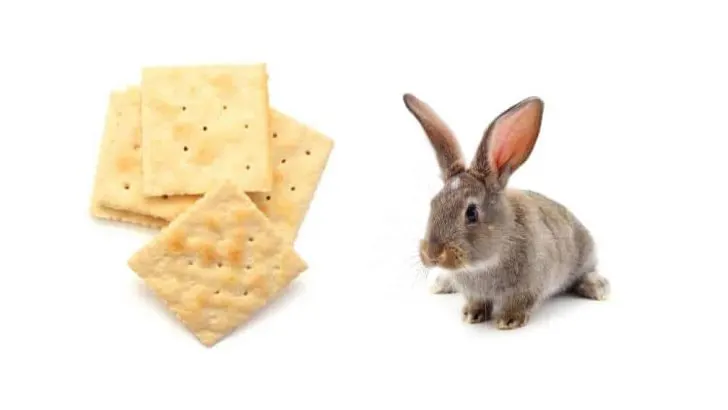Rabbits are extremely cute, there’s no question about it. But there are some annoying things that come with having one of these fluffers around the house. The first thing that comes to mind is their infamously sensitive stomach!
You might look to your fridge and chop them up some carrots or give them some lettuce. But human snacks just seem like a better deal. No chopping or washing, you just snap a cracker into some bits, and off you go! But that begs the question:
Can rabbits eat crackers? Well, unfortunately, the answer is no, crackers are off-limits. Not only that, they can be quite unhealthy for the little rascals.
But don’t worry, we’ll explain everything. By the end of this article, you’ll have some rabbit knowledge, a couple of healthy alternatives, and one happy rabbit!
Let’s get cracking!
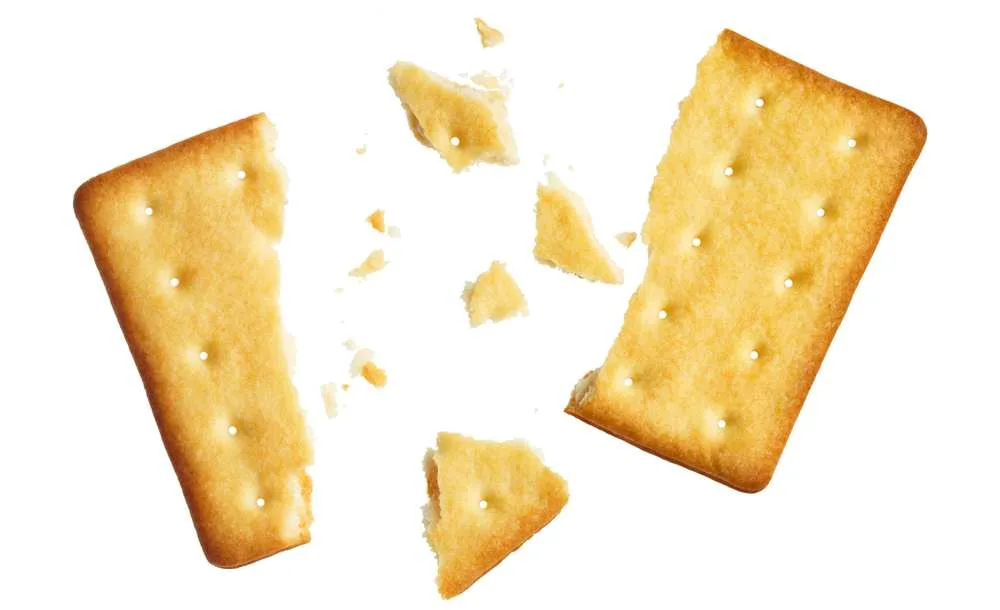
Can Rabbits Eat Crackers – Direct Answer
So, the short answer to your burning question is no, rabbits should not consume any type of cracker.
And yes, even though you enjoy watching your bunny munching on it, even more than he does – just put it away. As a matter of fact, rabbits shouldn’t eat any type of high-carb treats, which, besides crackers, include bread, pasta, and cookies.
Besides being high in carbs, most crackers are filled with fats and sugar, depending on the type. Fatty treats stimulate gastrointestinal movement but reduce the absorption of calcium. Then again, with fatty foods, there’s always a risk of obesity, leading to other health problems.
But does that mean that you could never give your bunny a cracker?
Even though one cracker wouldn’t kill your pet immediately, long-term consumption can leave your rabbit with some severe health issues.
There’s no need to panic if your bunny lays its paws on that one forgotten cracker under the couch. It’s just important not to give you rabbit friend crackers regularly as treats.
Another significant fact about cracker consumption in rabbits is that they are obligate herbivores by their nature. That means that for rabbits to be healthy and in good shape, they should only consume plant materials.
Approximately 80% of a rabbit’s diet should consist of grass or hay, then vegetables, pellets, and then very rarely treats.
To avoid digestion issues, the treats you give to any bunny should consist primarily of fresh herbs or vegetables.
Crackers, on the other hand, even if they consist mostly of flour and water, still usually contain flavorings and/or seasonings. This can be rough on a bunnies’ sensitive stomach. Besides that, they are a starchy food, but more on that.
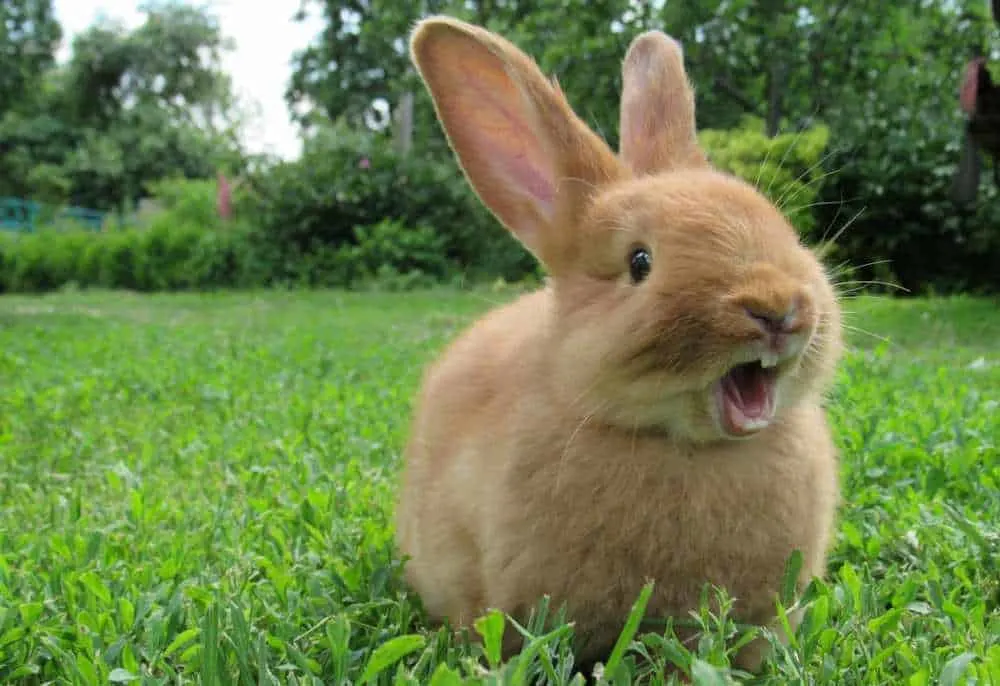
When Are Carbs Harmful?
Just like in other animals, carbohydrates are essential for a rabbit’s diet. Carbs are used for energy, especially for the nervous system.
Still, too many carbs can, unfortunately, make our fluffy friends sick. With a lack of carbohydrates, your rabbit is going to feel fatigued and suffer from malnutrition. Still, when given too much, they could suffer from obesity.
Rabbits are predisposed to obesity. As a matter of fact, as much as a third of pet rabbits in the UK are overweight. While this research is from the United Kingdom, you can be sure that bunnies from the United States have the same issues!
Although chubby bunnies can be adorable, having too much weight can lead to multiple health problems, and a shorter lifespan. Some of the health issues include heart disease, arthritis, liver disease, and even skin problems.
We can’t say that carbs are bad by themselves. They’re even a necessary part of our rabbit’s diet. However, moderation is key, and the source of carbs is also important. Starchy foods like bread, pasta, and crackers, are definitely not the carb source that your rabbit needs.
Low-fiber and high-carb diets in rabbits are linked to gastrointestinal disease, dental disease, behavioral problems, and, as mentioned above, obesity.
Simple sugars and starches are essential energy sources and are absorbed in the stomach. Any residual sugars or starch that is not digested and absorbed can pass into the caecum as a coating for bacterial fermentation.
According to Vettimes.co.uk, this can result in rapid growth in pathogenic bacteria, such as Clostridium spiroforme, potentially leading to fatal diarrhea.
So, why are loose stools such a problem for our pet rabbits?
Diarrhea is very common in rabbits. If not treated properly or on time, it can even be fatal. Diets that contain too many carbs, too few fibers or rapid diet changes – all bring your furry friend to a potentially life-threatening situation.
Now that we went through the main problems and risks with cracker consumption in rabbits, it can be helpful to look at the nutritional value of 1 cracker, which is about 4 grams.
| Saturated fat | 0.2g |
| Polyunsaturated Fat | 0.5g |
| Monounsaturated Fat | 0.3g |
| Sodium | 29mg |
| Potassium | 4.7mg |
| Total carbohydrates | 2.5g |
As we can see, in relation to serving size – that’s a lot of carbohydrates! So, keep in mind: next time your fluffy friend comes near some crackers, just move them on a higher shelf!
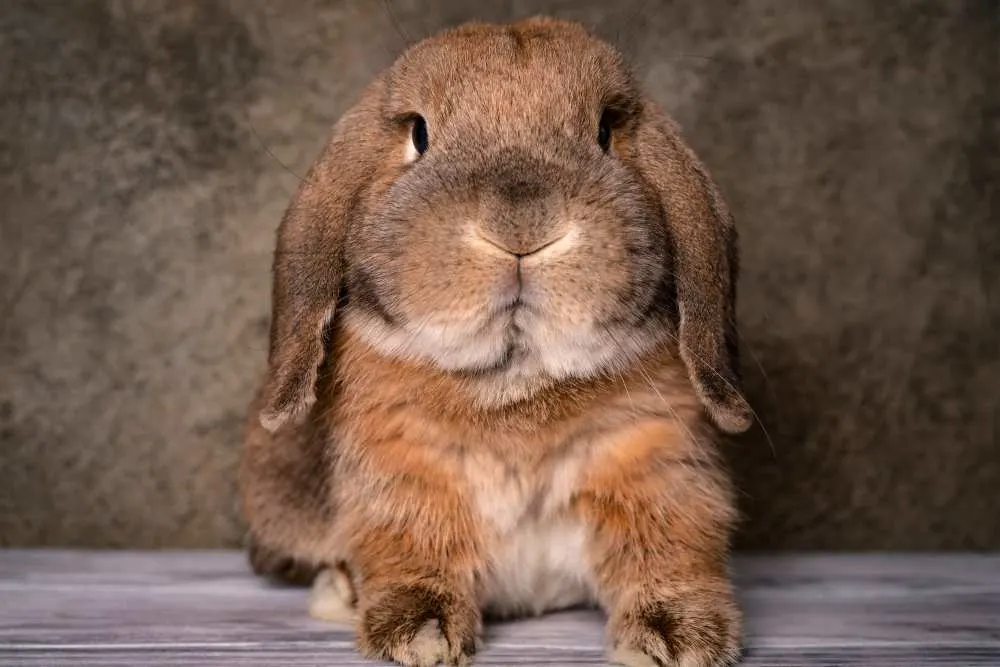
A Healthy Rabbit Meal Plan
With the long list of potentially unhealthy meals for your pet rabbit, it’s pretty normal to be worried about his or her diet. Rabbit diets seem complicated at first with all the banned foods. Luckily, rabbits are simple creatures with simple needs.
As mentioned above, most of your rabbit’s diet should consist mainly of good quality hay or grass and freshwater.
Both hay or silage and water should be available all the time for your bunny. It’s vital for rabbits to always have clean, freshwater. Without enough hydration, rabbits can get seriously ill.
Even though we all grew up watching rabbits munching on carrots in cartoons, it’s not the best idea to give carrots frequently to your bunny in real life. Contrary to popular belief, root vegetables such as carrots or potatoes should only be given to rabbits in small portions as a treat.
This is because rabbits don’t naturally eat these types of foods. Because they’re high in carbs, root vegetables may upset the gastrointestinal bacterial flora. One-quarter of a carrot every other day is considered suitable for a balanced rabbit diet.
Wait, what about pellets?
Look at pellets as junk food for rabbits. It’s not going to harm them immediately, but most pellets are low in fiber and high in carbs, so giving too much can lead to obesity and a soft stool.
Besides being the “bunny junk food,” when adult rabbits are given too many pellets, there’s a chance that they might stop eating enough hay or grass. When feeding your rabbit pellets, make sure not to exceed ¼ of a cup per 2.25 kilograms of body weight daily.
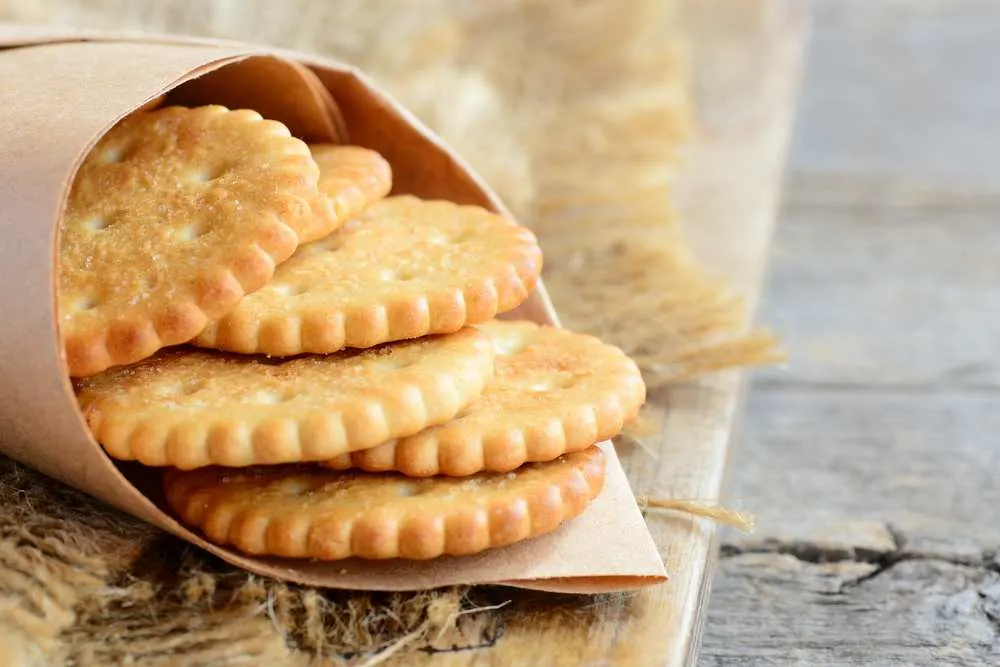
Best Treats For Rabbits
Although Bunnies are vegetarians with sensitive digestive tracts, they still appreciate a good treat. Those treats, however, should always be natural and high in fiber. Before giving your bunny treats, make sure that he eats enough hay or grass – a balanced diet is the number one priority.
Vegetables & Herbs
For starters, vegetables and herbs are rabbits’ favorite treats.
Most herbs and vegetables found in the supermarket are safe for your bunny, with a few exceptions: cabbage, cauliflower, legumes, mustard greens, and seeds. These foods should always be avoided because they can cause stomach issues.
On the other hand, safe vegetables should not be given more than two cups a day to your adult rabbit, and they should always be served fresh. Dwarf rabbits, however, should be given only one cup of fresh vegetables a day.
Here’s a list of some vegetables and herbs that your rabbit can enjoy daily:
- Bell peppers
- Brussels sprouts
- Cucumber
- Basil
- Parsley
- Rosemary
- Lettuces (Not Iceberg)
- Zucchini
Fruit
Fruits are filled with sugar, which is why rabbits go crazy over them. Because of the high sugar content in fruit, the healthy quantity of fruit in your adult bunny’s diet is up to two tablespoons per serving, just one or two times a week.
Below you can see a list of some of the fruits that are okay to give your bunny:
- Apple (With no seeds)
- Banana (High in potassium). Can Rabbits Eat Banana Chips?
- Blackberries
- Blueberries
- Grapes
- Mango
- Melon
- Peaches
See Also: Can Rabbits Eat Berries?
Keep in mind that whenever you’re introducing new food into your rabbit’s diet, it’s always best to go slowly.
It’s good to introduce one new, fresh food every three days while keeping a watch on your rabbit’s stool. Remember, food variety is good, but time is necessary for your bunnies’ stomach to adjust.
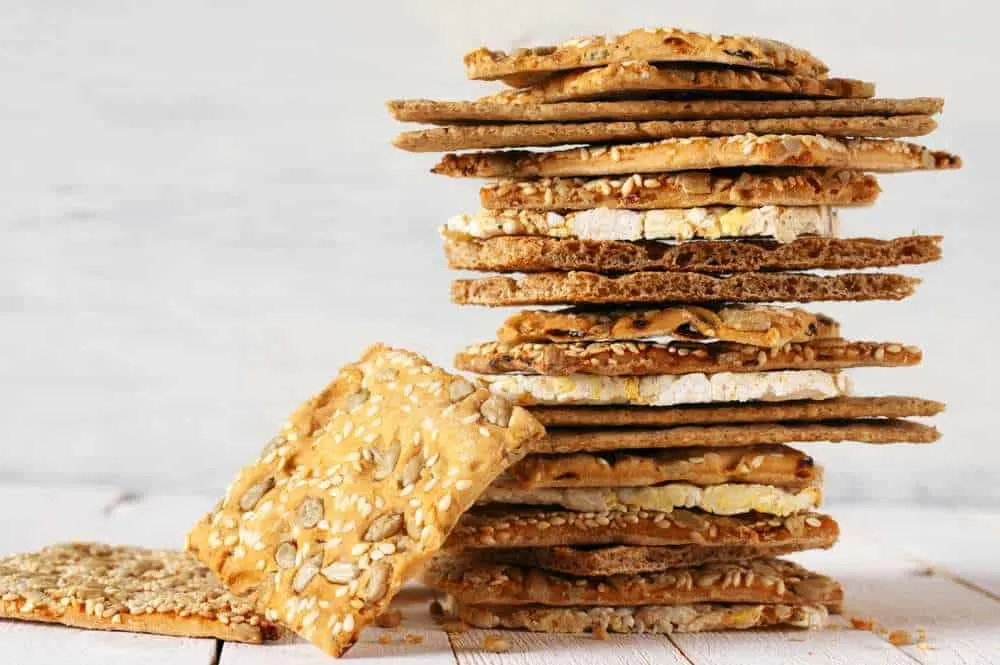
Final Words
So there you go! We’re hoping that you got all the information that you need about cracker consumption in pet rabbits. To sum up – you shouldn’t give your rabbit crackers under any circumstances. Crackers are just not good for them!.
On the other hand, even though crackers and other human treats are “forbidden fruits” for rabbits, you can absolutely give your bunny regular fruit! With a small number of fruits, moderate amounts of veggies and herbs, and enough hay – your pet bunny is going to be healthy and happy.

